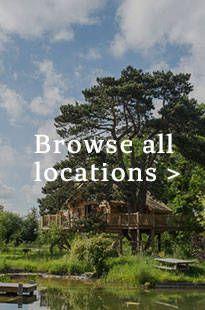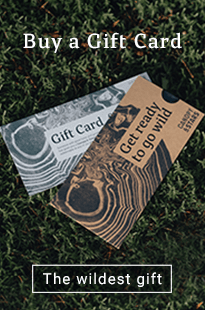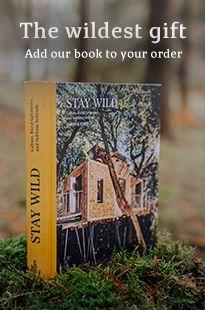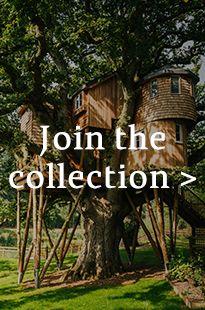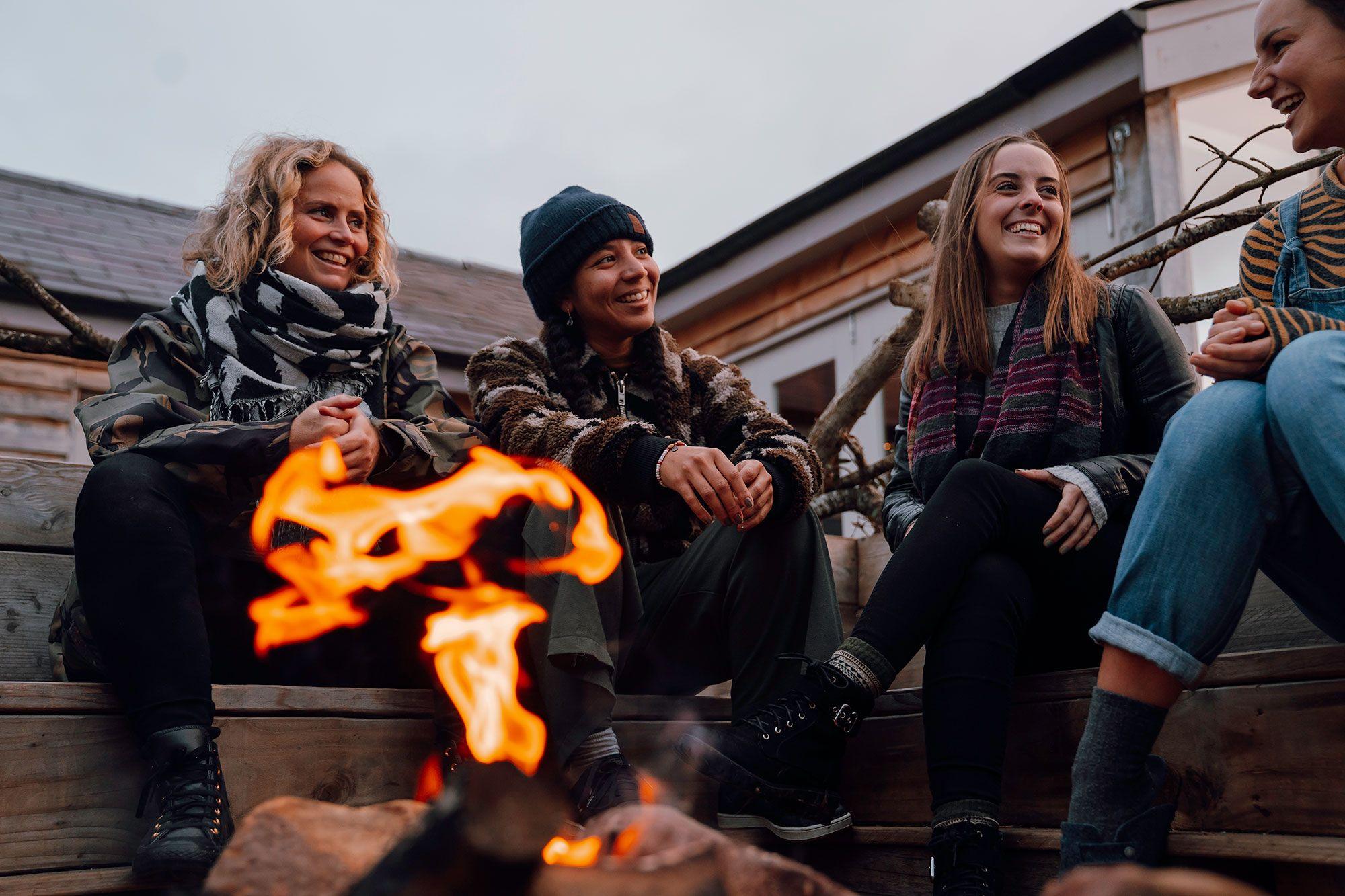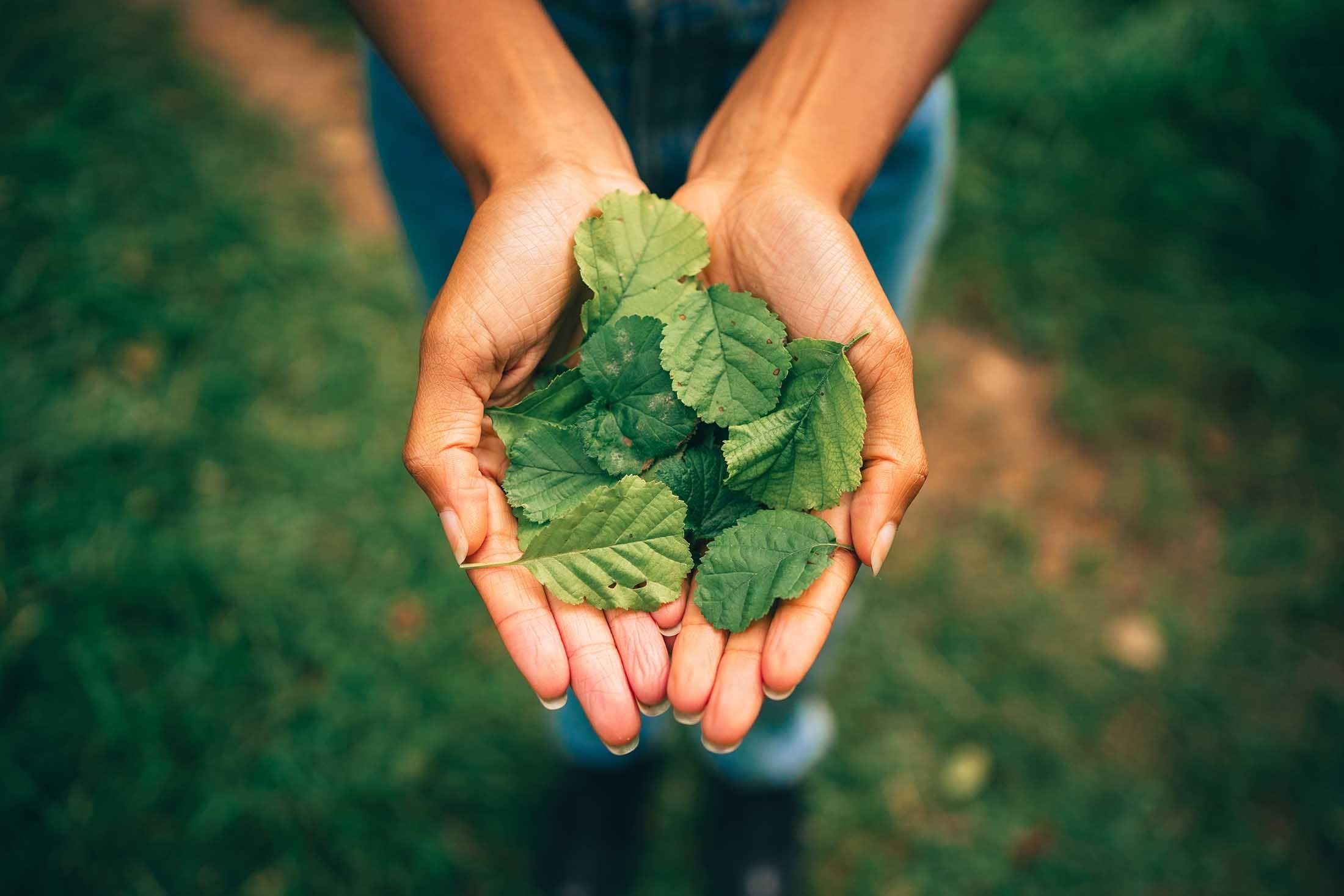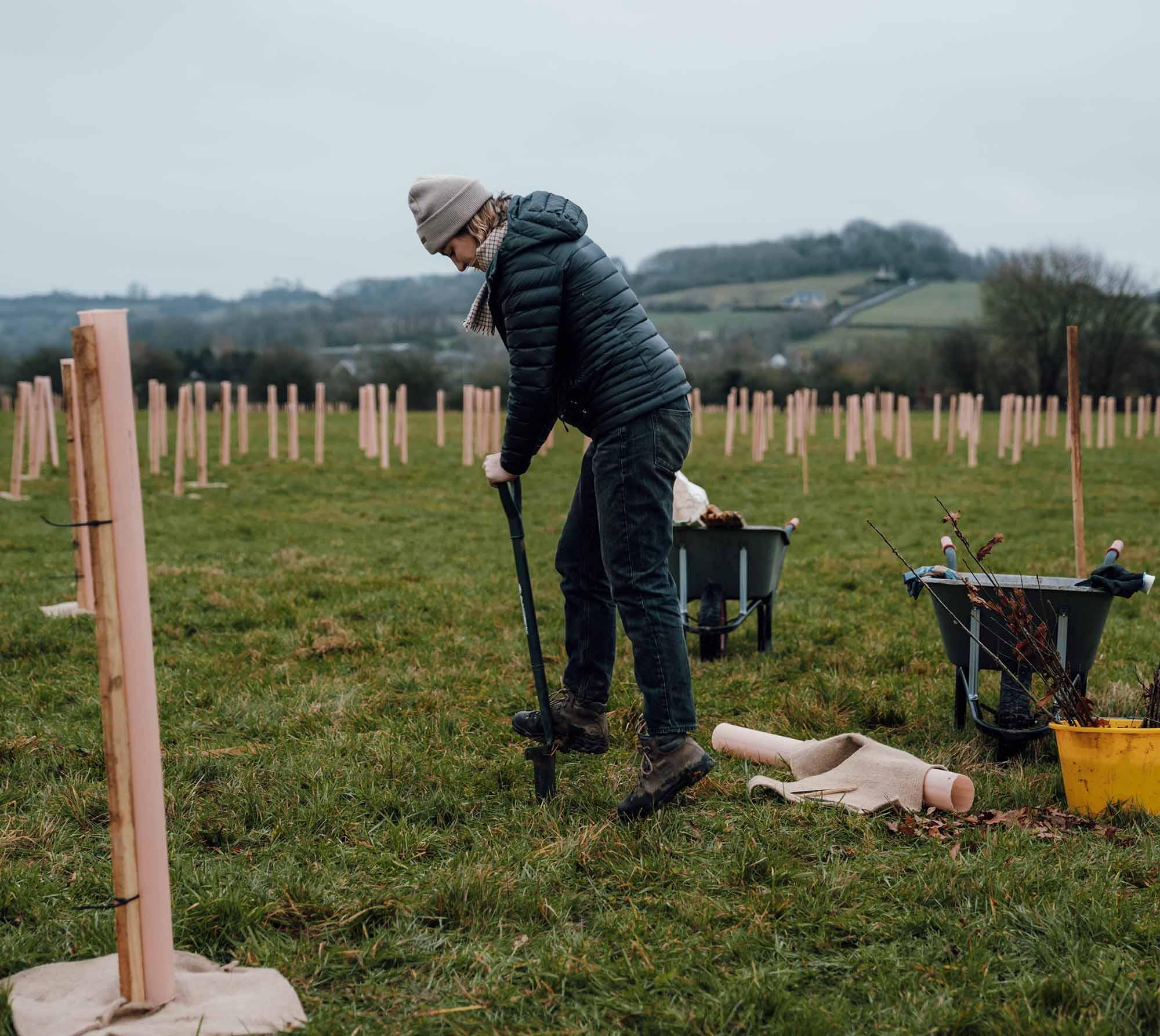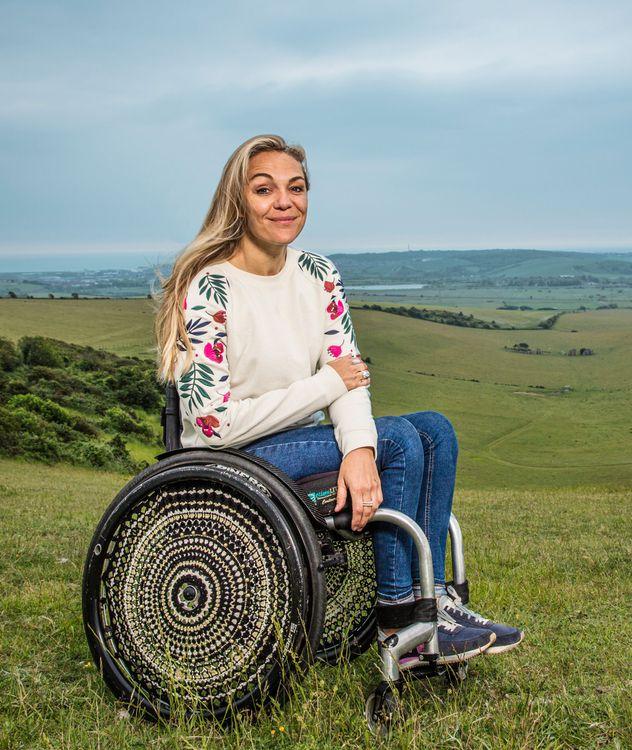
A Life More Wild - Series 2 Episode 7
Sophie Morgan & Alice Vincent
Sophie takes us to her local nature escape, and talking growing (up, out and in small spaces) with Alice
We took a trip around Southwark Park with TV presenter and award-winning disability advocate Sophie Morgan.?We talked about growing up wild, how her relationship with nature has changed, and if she was a tree, what tree she would be. We also speak to author and passionate gardener Alice Vincent, about the single flower that inspired her to a life of growing and how to work with any size of space.
Hi, this is Chris from Canopy & Stars and welcome to A Life More Wild. In this episode, we're looking at how relationships with nature can turn on a single moment. Later, we'll be talking to writer and gardener, Alice Vincent about how a single flower led to a life of growing and gardening. But first, we're in a London Park talking to Sophie Morgan.
I don't know I get a sense of calm here; I suppose because the city is so busy, and I live in a block of flats. So, I'm surrounded by people. And then I come down here not far from the flat and it's like, ah, trees everywhere. And there really are so many trees in this park. I love it. Little sanctuary.
Sophie is a presenter and writer who lives for the outdoors. She grew up wild in The Woodlands of Sussex. But at the age of 18, a car accident meant she'd be a wheelchair user for life. We've come to the park near her home, to hear about how she reinvented her relationship with nature, some of the challenges she finds with access and how she's learnt to like her disability.
Sophie, tell us a little bit about you, and where are we now?
I'm Sophie Morgan. I'm a TV presenter, and a disability advocate and we are currently sitting outside the Southwark Park Cafe in Southwark Park. On one side is a large, sort of playing field really, looking a bit scorched because it's so hot at the moment. And on the other side, we have a really lovely lake that's covered in green algae. And there's lots of geese messing around, and some swans. They look like they're getting a bit of a fight. And a beautiful, beautiful willow tree.
Why here?
I come here because it's really close to where I live. And when I came here, I couldn't believe how big it was and how lovely it was, and how much there was within it as well. So, I kind of come down here, just to go for a walk, in inverted commas, because I use a wheelchair. It's also really, really accessible. It's got paths running all the way through it. So, I exercise here sometimes on my hand bike or I just kind of go for a little, little wander.
But why London?
The thing about my life in London is I always feel a bit. It's sort of like a base, that I come back to because I travel so much. And when I come back to London and I'm in the city, I quite quickly start to feel, claustrophobic, because I'm not a city girl. And so, I use the park really, just to kind of go right okay, there's some trees, there's some greenery, and then you know, get back into the busyness of London again.
Where are we headed now?
So, we can go now, from the park, and just follow the pathway all the way around the lake. And then there's just, yeah, there's a load of different routes. I don't really tend to have one set route, I just kind of follow my nose, and see where it's quiet. I like to kind of go where you know, where there aren't other people, because you get a lot of kids coming down here to play sport. There's tennis courts, that kind of thing. It's proper city, park, you know, people really use it for everything. But I often come here, put my headphones on, go into a little zone and just wander around.
What's your story? How did all of this start?
I grew up in East Sussex, we were in the middle of nowhere, in a tiny little cottage called Little Birches, because it was surrounded by birch trees. It was actually on the Ashdown Forest, which is kind of well-known around the world for being the home of Winnie the Pooh. So, we weren't far from 100 Acre Woods and like where the story was based. Yeah, I grew up there with a little brother, my mom and my dad. And we always had lots of animals, like my mum always had dogs. She used to be a gun dog trainer when I was a kid. So, we had loads of dogs in the house, and we had cats, and all sorts, and really, it was a very kind of I call it feral upbringing, I was always out in the woods, building dens playing hide and seek and that kind of stuff. It was really, really lovely. Although as I grew up, I remember feeling oh, God, I don't want to live here anymore. I wouldn't be in a city and feeling really resentful because there was no bus nearby or no, you know, nothing of any excitement. But now I'm older. I'm like, 'oh, I'd love to live in that environment again'. But you know, work keeps me elsewhere. But it was definitely, a really idyllic and very privileged but peaceful, happy upbringing. And my mum, my mum had horses, she kept them locally with friends. And so, I spent most of my childhood sort of either on a horse or running around the woods really, which was great.
Which way now?
Yeah, look, we should go up here this way. There's a little bit it's not all fully accessible, but there's a beautifully paved, separate part of the park where you can come in here and then you can see the lake from a different angle. So, I grew up kind of wild. And then as I became a teenager, that sort of wildness then took on a different form. And I became quite difficult. And firstly, quite rebellious, I was just really naughty, I got in trouble a lot at school, and I pushed back against authority quite a lot. And it got quite out of hand, and I ended up having to leave one school and go to another school and, and then yeah, I got sent to school in Scotland, and did my A levels up there. And then in the summer, in the August, I got my A level results. And then I went to a party in the evening to celebrate the results and celebrate leaving school, and celebrate a start of a new chapter and going into sort of adult life, and celebrate going to uni, and you know, all those things that were happening at that time. After the party, I drove home, to a friend's house, and I crashed my car, and was paralysed in an instant, really. So, I kind of mark that was the end of my childhood. And then the beginning of my adult life was completely different.
How do you view that now, having the ability to reflect on it? And how do you interact with nature now?
I think, for me, I often think of my disability as like a reset, and I almost became zero again. So that beginning decade of my disabled life, which was me from 18, to 20. But really, if you started again as paraplegic zero to 10, I was working things out, I was sort of testing myself, testing other people, I was angry a lot, I was sort of fighting back and, and I was sad. And I was sort of I was all of the emotions, I think. I remember very vividly feeling intimidated by the outdoors, because I used a wheelchair. And wheelchairs are fantastic, in so many ways. They, they liberate people like me, you know, I wouldn't be able to get anywhere without a wheelchair. And I have a dependence on it. That's, that's hard to even explain. But wheelchairs are limited, seriously limited and one area that they really struggle with is, you know, the outdoors. So, I felt very much like, oh, gosh, I don't know how I'm gonna ever, be able to access that world again. And the cities themselves were not always accessible, but far more so than a, you know, muddy field. And so, I moved to London, actually, not long after my crash, I moved here. Because, as much as I'd like to have lived in the countryside, I knew I'd be really limited in what I could do. So, the city became the playground that I felt a lot more comfortable in. But always, always felt really like I wanted to be able to access, you know, the countryside. And it's only really in the last, I'd say decade, that I've been able to do that. And I think it's because I found more assistive devices, such as this mobility device that connects onto the front of a wheelchair and makes it into a scooter. It's amazing for getting me, helping me to mobilise outside and on terrain that's not very easy to go on. And so, I could take my wheelchair into a field and I you know, it's got its limitations, but it can get me in over the sand, or it can get me over some really difficult terrain, that otherwise my chair would really struggle with. It's extraordinary to, to think that just one invention, you know, it could make the difference between me living a life, that feels limited, and limiting and then, and then a life that feels full of opportunity. But it is as simple as that I'm very dependent on technology, and until we see innovation that helps people like me get into you know the world. It's, we can't ramp everything, you know, we can't have concrete paths everywhere. We want to go off that track and into the wilderness and into the wild but it's really difficult. I have never really found one piece of kit that can give me total freedom.
Where are we now?
We're now going into the Ada Salter Garden, which is this almost like a park within the park. And it's got these lovely beautiful pathways and then bricked archways that are covered in Wisteria. They're shaped in a semicircle and when you're within them and you look down them, they're all pointing towards the lake and the willow trees and it's lovely.
How did you come to terms with what happened?
Slowly, slowly, I started to carve out a purpose for my life and that's when, when things started to calm down, my relationship with my disability became one that was much more healthy, instead of going, why me? Why is this? What am I doing? How far can I push my body? And what can I do that's really going to challenge what I think my paralysis means. And I was very much sort of pushing, pushing, pushing. And then as I started to work out, that I actually could use my belligerence and my temper and my anger and all those sorts of behaviours that I had as a teenager, that I had in my early 20s, that had kind of led me off, you know, and got me into trouble. If I could repurpose them and put them forward into this like, right? Why did this happen? I started to question what that reason was, and that's when I start to go actually, maybe this did happen, and maybe I could like my disability, and maybe this is all gonna work out. And I was right.
What do parks like this mean to you now?
In one respect, being in this park is lovely, because it's like my little, dip your toe back into, what you're familiar with, and what you enjoy, and what you like, whilst you're living in London. And it serves a purpose to sort of calm me down and, and reset, but it's also great because it's accessible, and I can get around, there's paths, you know, it's, it doesn't make me feel unwelcome. But I also feel, it's not the kind of nature I really love, you know, it's like a kind of, happy middle ground where I can go, oh, I can get here. Oh, it's in London. It ticks those boxes. But, you know, ideally, I'd be out with my bare feet in the mud running around in a field that a wheelchair couldn't really get into. So, it's a sort of love/hate relationship. But at the end of the day, it's just so nice to have this space in such close proximity to my home. And I just, I love, I love the tree. I love the willow trees. They're my favourite. I thought if I would be a tree, I'd be a willow tree. Because they're like, the floppy like my legs. They just dangle and they love water when I love water. So, I love being in the water. I love swimming. That's nice place to come to.
Every now and again. You bump into PTs during their private sessions with their clients in the park, because they use it instead of going to the gym, so you can hear one coming up now.
Sophie's life turned on a dramatic moment, but Alice Vincent's nature epiphany was a tiny thing. The sight of a single flower, sprouting out of a crack on her balcony. It inspired her to grow, garden, and write. But not, as we discovered, to our surprise, to move to the countryside. She'd much rather bring natural beauty into the city. Alice, thank you very much for coming on. Tell us where you are right now -- what nature can you see? I imagine you to be surrounded by plants, but you appear not to be!
Other things! That are just, that are just out of shot. No, I'm actually in the room where I work, which is north facing. So, it's not amazing for the house plants. I tend to have them where they're happiest, which is in, in the other side of the building, but I do have the best view of the garden here. So, I am looking out and my main view the flower bed is actually blocked by my laundry currently. But beyond that, the peonies have just come out, they are blousy and pink, and fantastic, and slightly ostentatious as peonies always are. But there's masses of fennel, there's some marigolds. There are some sweet peas and some alliums. There's a lot of green perennials that are, really having the first moment out of the ground and a proper way, since last summer, and the roses. We are right on the cusp of having this year's roses too.
So, take us back to where it all began. I've heard about you sort of growing up in your grandparent's garden and how much you love that. What's your sort of abiding memory of that? That feeling?
I have such a visceral kind of smell and taste memory of my grandfather's greenhouse, which just the smell of Pelargonium leaves, and the smell of tomatoes that hot, kind of stuffy, fertile smell, that always takes me back to being small and, in the greenhouse, and eating very stubby little carrots fresh out of the earth as well. So sweet and crunchy. But for me, with regards to your question of how it all started, I'd probably say, that my kind of desire and kind of, compulsion to garden, began in London, on a balcony four stories up.
Not the easiest place to garden, I would imagine.
It's not, no, and it was north facing. But I also didn't know any better, because I'd not really gardened before. And I didn't have anyone to teach me. It was this funny thing that I didn't really know about myself. And I certainly didn't feel I could go to somebody else and be like, 'will you help me?' in case it was so preposterous.
So, it wasn't something you were looking to rediscover, then.
No, it was only really later when I started trying to trace my connection with the earth. And actually, that's something that I do look at in Rootbound, which is a book that I wrote and came out a couple of years ago. But it's something that I'm also looking at in a book that will come out in spring, called Why Women Grow, which examines women's relationship with the earth. And it was only kind of in hindsight that I thought, 'oh right, yeah, this goes back to my childhood'. And this goes back to what I grew up among. But, as part of the research for the new book, I did actually go back to those gardens, those formative gardens and realise that actually, I'm not sure that's where it came from. After all. Spoiler! I think actually, it's something about being in cities, and I love living in cities, and I get a lot of energy from cities, but it's about being in a city, that has made me perceive plants, and the outside world, in a very different way, and has encouraged me to garden.
How so? In kind of, realising their importance, because you see less of them?
You do see less, but I think also, it's a myth and a truth that you see less nature in cities, you know, we don't have the kind of abundance and largess and the wildness of the nature that you get in rural areas, undeniably. But I think there's a lot more in cities that people don't realise. And I think nature has adapted, quite cannily to city living. And also, the most encouraging and hopeful thing about nature and cities is actually you can coax it back in very easily, with how you garden, and how you engage with the world and what kind of stuff you put out. It will. It's amazing what turns up.
And then I've seen you talk about a sort of a circularity and you're caring for nature, and you get that care back?
Yeah, totally. Yeah. I mean, I think that's what a lot of people find great solace in nature. And, and it's been scientifically shown as well, author, Lucy Jones, wrote a book called Losing Eden -- fantastic book all about the scientific relationship of nature on our bodies and our minds and what it does, and, and so it's not just coincidence, everyone's like, 'oh, I feel better after walking in the woods', right, like we actively do, when we engage. But I also think there's something very gratifying about seeing the change that you can make in the world for kind of species and existences and, and biology that isn't human. There's something incredibly gratifying and seeing plants flourish and seeing ecological communities grow up in places where even as swiftly as a year ago, they just weren't there.
And you get that even from your, from your small city garden?
Yeah, so when I, the, for London standards, it's quite big, but by anyone else's standards. It is a modest garden. And it hadn't been neglected at all. When I turned up, it was in you know, it was tidy, but it didn't really have much in the way of planting variety or flower beds, I had no, I am an organic gardener and I had no understanding the extent of organic or otherwise, nutrients that gone into the soil, were a stone's throw from the river. So obviously, there's a lot of history in that soil and you dig up all sorts when you're working in the garden. But within six months, a year, of kind of, making my own compost and planting organically and okay, maybe cheating with the bird feeder, but you know, not using pesticides, and letting things be. I've spent most of the last couple of weeks watching young blue tits and bigger blue tits feed on the aphids that are gathering on the roses, which I put in. And that's because I don't use pesticides, but also because if you leave any pest long enough, even slugs and snails which are quite devastating, you leave them long enough, something else will turn up. I opened the back door the other day and found, a fox, who was quite regular here. And he does cause low level havoc. But I was, I'm pretty sure I saw him having a good go on a on a snail. So, I'm like, well this is great, right? This is a cohesive situation. And I'm not, I know I've seen the birds turn up. I know they weren't there before. It's not taken long to bring them in.
What was what was that first thing you grew, on the balcony?
Herbs.
Right.
Yeah, basil, mint, thyme. They all died quite quickly.
I was about to ask. I wonder if that was the north facing...
Yeah, it's interesting, I can't grow basil in. Yeah, in that situation, that Mediterranean herb wasn't loving life. But I think what the greatest thing that grew out of that first, summer in seasons, I spent two, three years growing on that balcony, which was sunny for all of its north facing-ness, just learning, the biggest thing I grew, I suppose, was an enthusiasm and a kind of addiction, and compulsion for plants. And it wasn't really just about growing them. Because I think like any engagement in nature, whether that's bird watching, or rock climbing, or whatever you want to do, wild swimming, it's a heightening of your awareness. So, I began to I use the verb translate, but I began to understand the plants and the greenery around the city in an entirely new way. I started looking more intently at what people were growing in their gardens, I started looking at how parks were planted up, you know, once you click into it, you start seeing it everywhere.
Yeah, absolutely.
We are sitting and talking about nature. But I would like to say I have some complexities around the word, because I think othering it may suggest that we're not part of it. We absolutely are. Yes, it's easier and both more cumbersome to say the outside world or plants. But yeah, of course, we're part of it. And that's why I think people get so much gratification from growing food and eating it and feeling more reliant on the land.
And feeling a part of it again.
Yeah, exactly. And it's also I think, if you're removed from it, it's very difficult to ground yourself in a literal sense. Because what is more grounding and seeing, you know, where you are in regard to say, the cycle of the moon, or the seasons, or when, when the sunrise is those things are beyond our control in a huge way.
Yeah, there's an enormous, a perspective there, almost an equivalent of the thing people talk about when they look up at the stars. And you think, 'oh, hang on, if I'm part of this enormous process. How can I be worried about my tiny things, when there are these giant cycles sort of rolling on in the background?'
Yeah. And it was exactly that. That realisation that came to me, that I wrote about in Rootbound, which was kind of the triggering point for that entire life change was that I, underwent a very unexpected relationship breakdown and had to move, and various other things kind of fell apart. And it was a grim June afternoon, I was feeling completely, heartbroken, to the extent that I wasn't even going out into the balcony. But I'd walked up to the balcony door, which was made of glass, and I saw through it, that this Poppy had bloomed against the slick concrete of the balcony floor and the rain hurtling in this heavy grey London sky. There was this perfect, perfect white Poppy. And it was so beautiful. And it was so unexpected that it made me literally gasp. And I, I realised then I was, that those puppies were going to bloom, and then the petals would fall off, and it would go to seed and then the cycle would renew and all of this stuff that was one tiny part of a huge system that would continue regardless of what we were doing in our lives. And that was so reassuring. It's like if that's happening, then then I can recover as well.
Why planting particularly? Was there ever anything else in contention for being that, that thing that gave you happiness/connection?
It's a good question. And it hasn't been asked that much before. And I think it's because on paper, I was doing a lot of cool other things. So, I was a music journalist, I got to go to festivals and parties and I travelled and all of that was fun, but it didn't give me purpose in the way that gardening did. And I think that's because of the pace. And that garden is actually, an innately slow activity. You can't rush it; you cannot make seeds grow that much faster. Even if you applied like, all of science, and load of technology, and grow lights and, superspeed plant food, if such thing exists, you'd still have to wait the inevitable amount of time for something to emerge. When I was working and living in an existence where I felt like I had a lot of autonomy and a lot of that was slipping from me. I really relish the fact that gardening took life on its own hands and that it surprised me. It was endlessly surprising to me, in a way that I didn't get a sense of surprise or celebration even from the other aspects of my life. In the sense that you would be able to walk out onto a balcony and see a poppy in bloom that you didn't know was going to. Still happens daily now in the garden, every morning pretty much as soon as I wake up. I will try and force myself into the garden, because I like seeing bright light as a means of waking up. I will have a little look around the flower beds. And you'll just suddenly see something in flower that you didn't even know is there, or you'll see a whole perennial has just popped up while you weren't looking. And that for me is, is just like a little delivery of, of goodness every day. I love it.
So, what would your first tip be, for anyone looking to sort of not necessarily get into gardening, but to find that sort of deeper connection?
Look. It's really as simple as looking. Plant blindness is huge. I'm not saying problem, but a huge situation that lots of the population have plant blindness as in the sense of not being able to recognise or even be aware of the greenery around you. Because if you've never been grown up, shown what is what, or this is a tree or enjoy this flower, then you're probably not going to notice it. That's part of the problems, why we've got an ecological disaster is because we don't really know what we're losing, a lot of the time. But what to look for, even if it's as simple as you go on your walk to work, or to drop the kids off or whatever you're going, to the shop, try and take a note of what the trees are doing. Have they got leaves? What colour those leaves, they seem bright? Do they seem dark? Are they crispy? Did they look fresh? Are they big? Are they small? Are they round? Are they pointy? Let's really take yourself through these steps of trying to look closely at something. Because when you do, you'll start to, that's how you start to develop your taste in plants as well. A lot of people ask me, what should I plant? That's like saying, Well, what colour? Do you want to paint your bedroom? You know, there's all the colours and the paint chart. And I can't be the one to tell you.
I love the idea. I mean, if you start looking, you'll start noticing the changes. Yes. And then you start noticing the seasons, and then you can sort of it'll creep up on you.
Yeah. And also, then you give yourself access to the greatest thing of all, which is noticing the changes. I think so much of gardening, certainly for me is anticipation. I love the anticipation. You know, it's great that the peonies are out now. I'm very glad they're there. But that doesn't mean I'm busy looking being like yeah, but the roses, the roses are going to come soon. So always something else to look forward to even in the depths of autumn and winter, that quietening down well then, you're like, well, maybe we'll get a really good frost. There's always something and it's a very, for me, it's a very useful means of holding on to time when everything seems to be going very quickly. Even when everything seems incredibly bleak. There will be something growing, even in a city and that is hugely heartening for me.
Sophie and Alice both reforged a lost bond with nature, and I hope that their very different stories show how there is no right way to be in touch with the outdoors. In the episode notes, you'll find links to Sophie's latest adventures, her new show, as well as all of Alice's books and articles. Either of them could end up sending you off on an exciting new green Path. Please rate review and subscribe to Life More Wild, wherever you get your podcasts, and we'll see you soon for the last episode in this series, a little bonus episode with architect George Clark.

